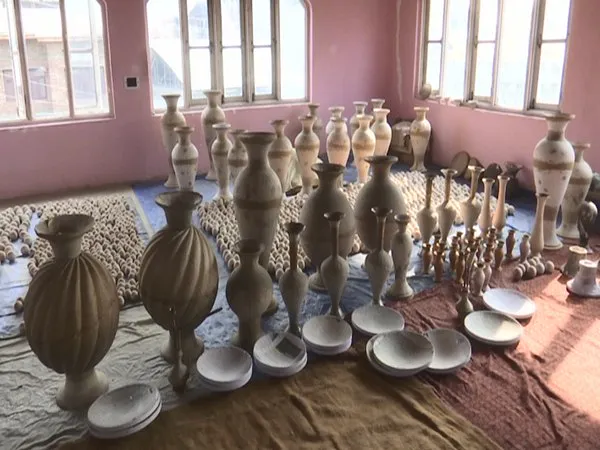The Government of Jammu and Kashmir is taking steps to promote Kashmiri products and handicrafts in national and international markets under Prime Minister Modi’s “Vocal for Local’ with an aim to create market linkages for them.
Prime Minister Narendra Modi announced on August 15, 2020, that the mindset of free India should be “Vocal for Local’ to achieve the goal of ‘Atmanirbhar Bharat’ (self-reliant India). India has a unique array of products as well as a comparative advantage in many products and many of them fascinate global buyers for their quality and elegance.
As the country came out of the Corona pandemic scare due to a successful vaccination move in the whole country including the UT of J&K, the handicraft industry once again bristled with activity. In the month of April 2022, a mega buyer-seller meet was organized in the UT under the ‘One District One Product’ initiative of the Department for Promotion of Industry and Internal Trade (DPIIT). The aim of the buyer-seller meet was to promote unique Kashmiri products and to create market linkages for them.
The buyer-seller meet witnessed the presence of multiple national and international brands with a cumulative revenue of over Rs 8000 crores and having their products available in over a million retail outlets across the world and sellers, traders, farmers aggregators from various districts of J&K.
The participants in the meet showcased their products that are unique to the valley including the world-famous Kashmiri Saffron, Himalayan White Acacia Honey, Red Shiny Kidney Beans, freshly grown organic vegetables and more. Saffron growers of Kashmir are hopeful to get better prices for their products.
To promote unique Kashmiri products, the J&K Government has launched initiatives for Geographical Indication (GI) tagging. This would go a long way in promoting the marketing and export of specific products from the UT.
The Agricultural and Processed Food Products Export Development Authority (APEDA) has also begun new initiatives to popularize some of the agricultural products from the UT of J&K and Ladakh such as fragrant rice variety Mushkbudji, Acacia honey and Kashmir valley apples.
In 2020, the J&K Government directed officials to put in place special policy measures for ensuring the revival and propagation of traditional arts and crafts, especially Pashmina weaving.
In the Karkhandar region of the UT, a new scheme to revive the ailing craft sector was unveiled in 2021 to upscale the learning techniques of trainees and help the artisans to improve their standard of living.
In J&K, there are about 250,000 artisans who are directly dependent on handicrafts for their livelihood. The UT has about 180 major craft clusters associated with the handicraft sector, generating a revenue of more than Rs. 1000 crore. It is estimated that there are 4.3 million weavers and 6.9 million artisans in J&K which involves about 350,000 craftsmen and artisans.
Moreover, the J&K Government has also instituted State awards for the artisans in the handicrafts sector.
In August 2021, the UT government gave awards to artisans in different categories that included Sozni, Paper Machie, Chain Stitch, Crewel and Carpet so as to inspire them to keep not only the traditional handicraft alive but also to market and export these unique Kashmiri products on a bigger scale.
The Government of India is at present promoting National Handicraft Development Programme (NHDP).
There are various sub-programmes under NHDP viz., Dastkar Shashktikaran Yojana (DSY), Handicraft Mega Cluster Scheme (HMCM), Marketing Support and Service Scheme (MSSS) and Research and Development (R&D) Scheme throughout India and J&K handicraft sector would also benefit from it.

